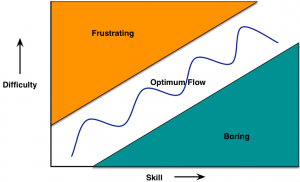Again, a video of an idea I want to talk about. This time about AI and Meaningful Practice (just around 2 minutes). I welcome your thoughts.
By the way, I’m experimenting with video as a blog mechanism. A colleague mentioned that no one remembers the author of an article or post, but they do remember the speaker in a video. And much as I hate to do it, I do want people to associate my ideas with me! I welcome, very much, your feedback on this too!
Script:
Hi, I‘m Clark Quinn, Executive Director of Quinnovation (my vehicle for learning experience design strategy). Today I want to talk about an insight I had, sparked in a conversation I had with a colleague. We were talking about learning (of course), and the difference between knowledge versus practice.
I was reminded that we‘re now seeing AI technologies that can parse content and then answer questions about it. We even see ones that can ask you questions about the content! Which is part of learning. But not all.
My realization was that, increasingly, these systems will take over this form of content presentation. That is, we‘ll write a white paper, and an AI will parse it, then present it, and drill it. Which is, after all, way too much of corporate learning. See, for instance, the Serious eLearning Manifesto as a response.
Now, I‘ve always maintained that such systems aren‘t sufficient for real learning. Meaningful learning includes more: motivation and contextualized practice. Content presentation and quiz questions may be necessary, but by no means are they sufficient. And that for now and the foreseeable future, AI will not be able to create those elements.
This is the job of LXD: integrating learning science and deep engagement into experiences that transform us. Which means that what L&D needs to do is stop doing information dump and knowledge test, and learn how to do real learning experience design! That, I suggest, is a noble pursuit (and, to be fair, what we should have been doing all along).
Of course, there‘s also the necessary new role, per my last post/video, of being a facilitator of informal learning. Coupling the optimal execution with continual innovation. But, for now, I‘m suggesting we truly have to master everything that makes learning work, in particular meaningful practice.
That‘s my take, I welcome hearing yours. Thanks for watching!
